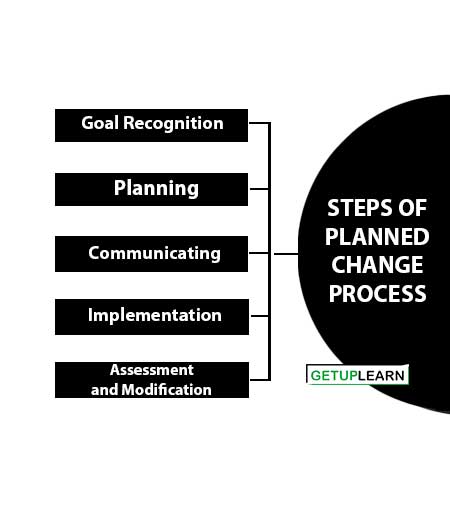Table of Contents
Planned Change Process
Change is virtually unavoidable in businesses. Changes can be made in reaction to a problem or crisis; they can be made to prevent a foreseeable problem from arising, or they can be made to improve upon any aspect of a company.
Familiarizing with the phases to change in a business environment is the first step toward implementing meaningful change in the company. The steps of the planned change process:

Goal Recognition
The first step is recognizing the need for change, which can arise from various sources like front-line employees, audits, or strategic assessments. Tools like SWOT analysis or Gap analysis can help identify concerns and necessary steps to achieve desired performance levels.
For instance, a software development company might realize the need to address customer support issues due to increased support requests with sales growth.
Planning
Managers and decision-makers generate alternatives to achieve the identified goal. Extensive research is conducted to assess the impact on finances, efficiency, and product quality. Using the software development example, the company’s leadership would research outcomes like hiring new local workers, setting up a support center elsewhere, or outsourcing the function.
Communicating
Managers communicate the plan of action to all affected employees, conveying the need for change and the goals. Employees undergo their internal change process, progressing from surprise and resistance to understanding and acceptance, eventually integrating the change into their routines.
Implementation
Immediate changes, such as refund policies or dress codes, are implemented right after communication. Other changes, like new technology installation, require a thorough implementation process, involving project management to coordinate efforts among employees, managers, and third-party service providers.
Assessment and Modification
After implementation, there’s an adaptation period during which employees learn and grow accustomed to the new environment. Managers measure the new results based on measurable goals set earlier. If needed, further modifications may lead to restarting the change phases.
FAQs About the Planned Change Process
What are the steps of the planned change process?
The following are the steps of the planned change process: Goal Recognition, Planning, Communicating, Implementation, and Assessment and Modification.
